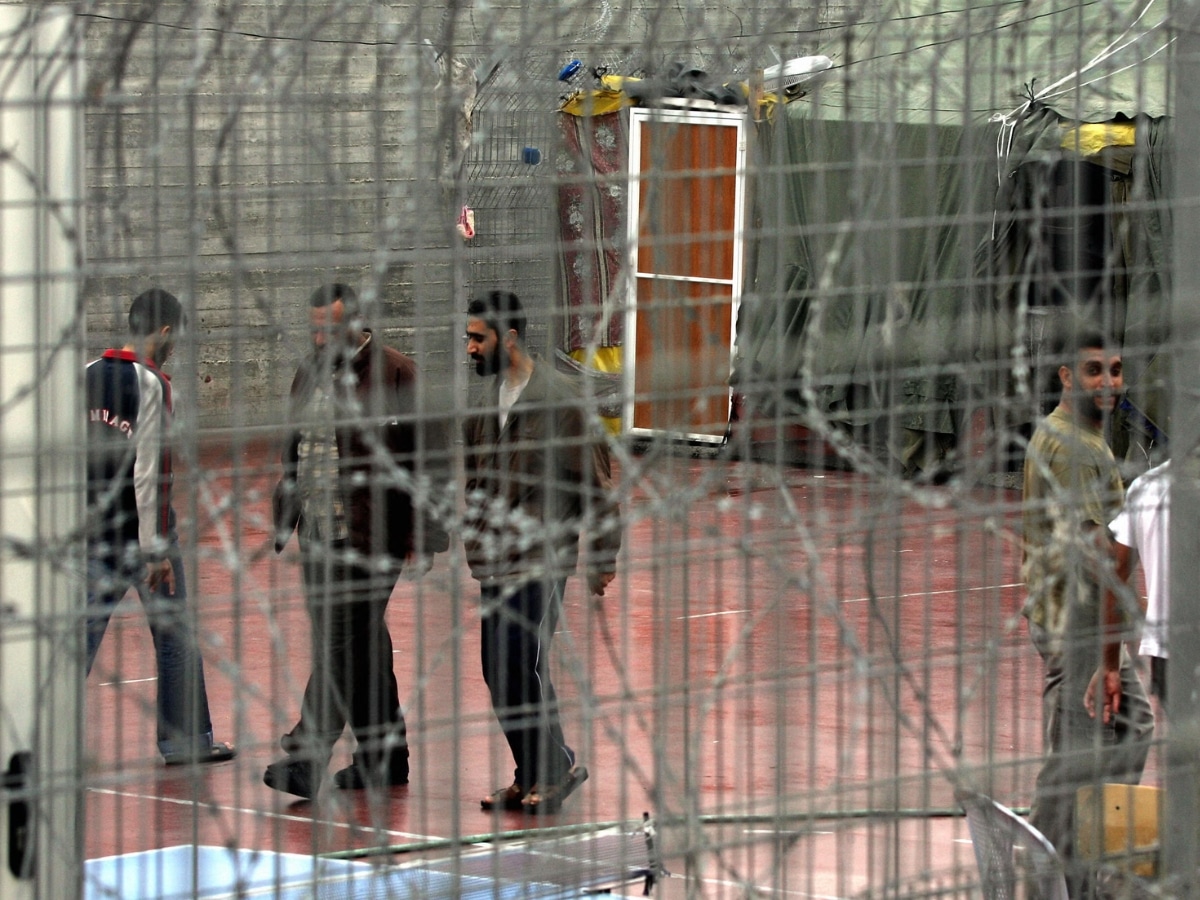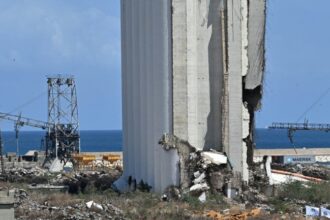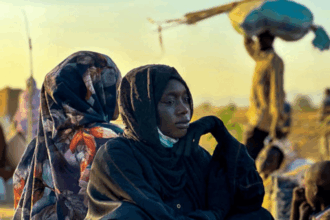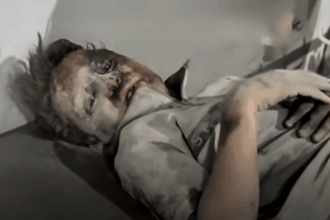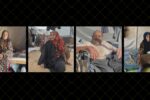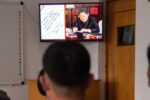The Palestinian Prisoner’s Society has released a briefing following extensive legal visits to several Israeli prisons, exposing a grim and escalating reality for Palestinian political prisoners.
Lawyers who visited Naqab, Megiddo, Ramla, Ofer, Shatta, Gilboa, and Damon prisons documented testimonies from men, women, and children. Their accounts point to systematic abuse, deliberate medical neglect, degrading conditions, and an unprecedented rise in detainee numbers since Israel’s genocide in Gaza began.
Disease and deprivation in Naqab Prison
Naqab Prison, in the south of the country, is one of the largest detention centres, holding thousands of Palestinians. It has become both a laboratory of repression and an epicentre of disease. More than 20 detainees were visited there, with most suffering from scabies infections, often recurring despite previous treatment.
Prisoners reported a severe shortage of basic necessities such as clean clothing, with some not allowed to change their clothes for six months, and also said they are denied cleaning products, while electricity and light are frequently cut off for long stretches. Even the right to shower is weaponised – since it is only permitted during ‘break time’ in the prison yard, guards can ensure prisoners remain unwashed simply by denying them yard time.
The testimonies described cell life plagued by itching and rashes left untreated, pain met with mockery instead of medicine, and food so contaminated it often carried bird droppings, rotten vegetables, or even soap residue. Yet detainees said they had no choice but to eat it. Medical staff, who should provide care, use humiliation as a tool of punishment instead.
Adding to this, violent raids by Israeli occupation forces (IOF) ‘suppression units’ have sharply increased in frequency and brutality since 7 October 2023. In Naqab, the notorious ‘Keter Unit’ carried out a particularly violent raid on 10 September, hurling stun grenades and firing rubber-coated bullets that wounded at least one prisoner. Strip searches and demeaning treatment accompany these assaults, with even detainees brought to meet lawyers facing beatings out of sight of cameras.
Neglect and abuse of Palestinian prisoners across other prisons
In Megiddo Prison, untreated injuries, chronic pain, and worsening infections dominate testimonies. Prisoners with fractured bones or severe wounds said they were left without proper medical attention or even basic painkillers. Raids occur every two to three weeks, usually at dawn or the dead of night, when prisoners are most vulnerable. Dogs, stun guns, batons, and verbal abuse accompany these crackdowns, leaving many injured. Skin diseases such as boils, fungal infections, and eczema continue to spread, highlighting the dire shortage of clothing and hygiene supplies.
Ofer Prison tells a similar story but with an even darker twist. Here, medical neglect extends indiscriminately to children. Over 210 Palestinian children are currently held in Ofer, many infected with scabies and other untreated illnesses.
At Damon Prison, women detainees face compounded layers of abuse. Testimonies describe suffocating humidity, widespread insects, food supplies unfit for consumption, and increasing restrictions on outdoor time. They endure raids, strip searches, and physical assaults. Feminine hygiene needs are deliberately denied, despite cases of prisoners suffering from illnesses and psychological distress that worsen under these conditions.
Weekly raids by suppression units also dominate life in Shatta and Gilboa prisons, where guards deploy electric stun guns and police dogs. In the Ramla Prison Clinic, the very place meant to care for the gravely ill, conditions are described as even more alarming. All prisoners there suffer chronic diseases, yet treatment is virtually absent. The scabies outbreak has even spread here, with ten detainees in isolation out of the 22 in the unit.
Highest number of prisoners since 2000
What emerges from these prisons is not only a pattern of humiliation and neglect but one of control, designed to break Palestinian prisoners. As of early September 2025, more than 11,100 Palestinians are held in Israeli prisons – the highest figure since the Second Intifada in 2000. This number excludes those languishing in military camps run directly by the occupation’s army.
Included within this total are 53 women, among them two from Gaza, and at least 400 children. The surge in administrative detention – prisoners held without charge or trial – has reached almost 3,580 in the West Bank, while more than 2,660 detainees from Gaza have been classified as ‘unlawful combatants’, a category that also extends to Arab detainees from Lebanon and Syria.
Practices inflicted on Palestinian prisoners are ‘direct extension of the genocide’
According to the Palestinian Prisoner’s Society, the conditions in these prisons cannot be seen in isolation from the broader reality of genocide and ethnic cleansing. Torture, starvation, disease, and humiliation have become extensions of the Israeli occupation’s aggression in Gaza.
The organisation’s calls to the international community is this:
The crimes committed have reached a level that words cannot adequately describe. What is taking place constitutes part of a broader process of ethnic cleansing and erasure, and the practices inflicted on prisoners and detainees are a direct extension of the genocide. The continued international silence in the face of these crimes is an affront to all of humanity, and the consequences of this war will reach everyone who used helplessness as an excuse to evade responsibility.
Special Units of the Israeli Prison Service: instruments of torture and control
According to Addameer Prisoner Support and Human Rights Association, prison raids by Israeli Occupation Forces ‘Special Units’, or ‘Suppression Units’ are extremely violent and give way to a host of abuses and human rights violations. They serve as one method of collective punishment, torture, and ill-treatment of Palestinian prisoners and detainees, with the occupation systematically exploiting any excuse to deploy its special forces into prisons to attack and harass the Palestinian prisoners and detainees.
Back in 2020, Addameer described the attacks in Israeli prisons which it documented:
Special forces shackle the prisoners, often physically assaulting them without any regard to their medical conditions and using tear gas and pepper spray, along with a plethora of other tactics to further abuse them. More often than not, the prisoners report sustaining grave injuries due to the brutality of the attacks.
These Suppression Units are heavily armed and trained in combat skills, and represent the hardline enforcement arm of the Israeli Prison Service (IPS), playing a central role in managing supposed ‘unrest’ and ‘security threats’ inside Israeli occupation prisons.
The Keter Unit is a special guard unit stationed at Naqab Prison, and is one of the main Suppression Units, focuses on enforcing discipline through forceful interventions within the prison, often involved in cell raids and transfer operations. After 7 October, the Keter Unit’s presence inside Naqab Prison has became almost daily, and its members use excessive force on the prisoners during the raids.
Addameer documented a group of prisoners who were abused and had their ribs broken by the Keret Unit, which is also responsible for beating to death prisoner Thaer Abu Asab, in November 2023.
Featured image supplied
